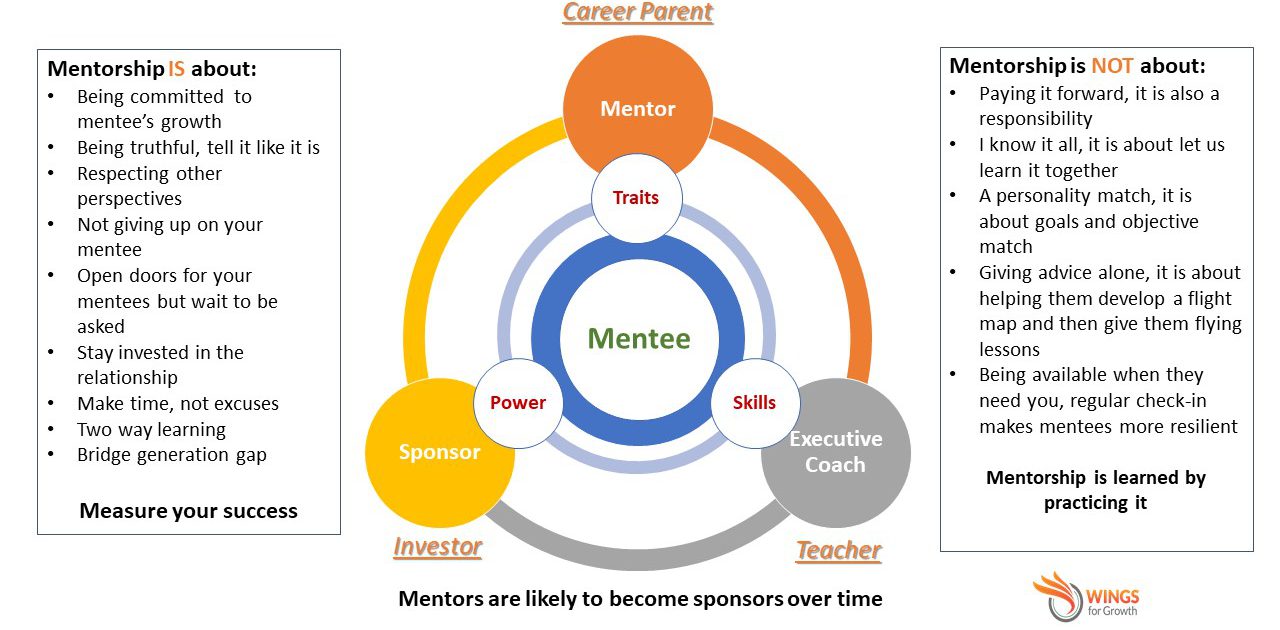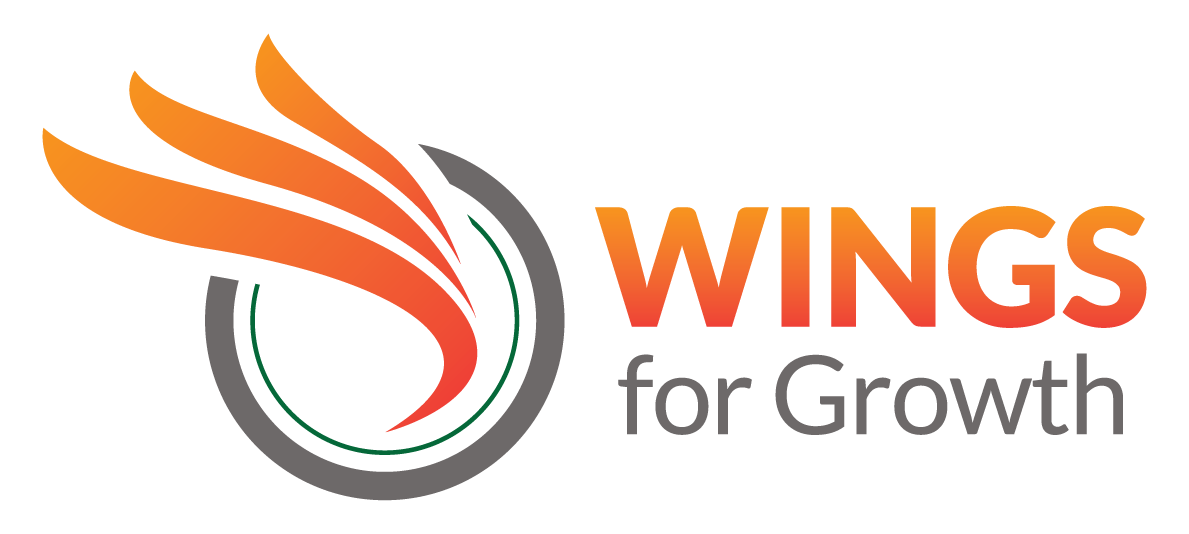Non-Traditional Mentoring: Does the mentoring program offered at your company work?
Non-Traditional Mentoring
Does the mentoring program offered at your company work?
Most companies have some kind of mentoring program but are they effective? Probably not, so, why not?Almost everyone I met, said they have a mentor and/or they are a mentor themselves. When asked how do they measure the impact of their work as a mentor, often responses are lukewarm.
Women who have mentors report they are happy that they have a support system in place. Women who do not have a mentor do not know how to get one and more often they would like to have a mentor outside the company and a sponsor within the company. Educational institutions focus on course material that allows little to no time for students to become better leaders, communicators and ready for workforce.
This is what we found when we looked at company programs:
- Significant resources spent without long-lasting impact
- High potential employees feeling stuck in the middle
- Companies are looking for women leaders but women are not ready to rise
- Millennial with strong academic backgrounds don’t value mentoring, they want fast results
- Managers often do not have succession plans, as a result, companies are spending money on recruiting senior talent externally rather than developing internal talent
- Insufficient avenues for mentees to apply lessons learned in the short term on the job or outside work so they exit
- Lack of a learning environment that is fully personalized to a mentee’s needs
- Lack of good mentors/teachers who are willing to invest their time outside of work
- Managers lack leadership skills and may have biases towards promoting their own people regardless of leadership potential
- Leadership has no time to commit to a formal mentoring program
- HR is not empowered enough to fund these programs with external or internal resources
What research suggests (https://www.ncbi.nlm.nih.gov/pmc/articles/PMC2352144/):
- Mentoring is associated with positive behavioral outcomes
- Mentoring is associated with positive attitudinal outcomes
- Mentoring is associated with positive health-related outcomes
- Mentoring is associated with positive relational outcomes
- Mentoring is associated with positive motivational outcomes
- Mentoring is associated with positive career outcomes.

Mentor vs. Coach vs. Sponsor
Through my years of experience, I have learned that the sponsor plays an important role in achieving your career goals but mentors equip you to have a dream and then build a clear path to get there.
Sponsor: There is a great deal of trust required to earn someone’s sponsorship. Sponsors put their reputation online for their protégés. Proteges must be ready to take on the opportunity sponsors bring and do well to make them look good. Sponsorship can be quite transactional. It is generally a two-way street. It cannot be always one directional.
Mentors: Mentors are more like career parents, great support system, they will be there if you fall and not judge you. They may not expect anything back from their mentees. They teach you to use your natural self to build confidence and courage. Be authentic. Good mentor/mentee relationships can last lifelong.
Coaches: Coach is focused on teaching specific skills you need, they will help you with your development plan and provide tools that will help you learn faster. They are usually there for a fixed period of time with a very targeted scope.
What should you invest in…
- Preparing members of the leadership team to develop and own a succession plan, they must mentor someone, it is a not just a good thing to do, it is a responsibility
- Creating a culture where employees feel “Supported” not “Watched”
- Empowering HR, head of HR must be the most influential person among the leadership team
- Creating a stress-free environment where employees can freely learn and discuss their issues
- Engaging an external resource who can bring fresh ideas and provide full independence regarding your mentoring program
- Teaching senior people who to be a good mentor. They are like career-parents to their mentees. Now, that is a commitment!
Conclusion:
Yes, women need both mentors and sponsors. I find it hard that someone can be well invested in you as a sponsor without being your mentor.
First, find a great mentor and then making them a sponsor is the best way to build the support system that will work for you.
Call to Action: You can rely on the support system provided to you, or you can create the one that will meet your needs. WINGS asks women to help themselves to rise as leaders by applying to be a mentee in our Signature Program. Do not miss our 2019 enrollment period.
This article is written by Varsha Waishampayan, Founder and CEO, WINGS for Growth. Varsha is dedicated to creating pathways to promote women leaders. She is a gifted cultivator of talent who believes high potential women will thrive with the right guidance and a structured results-oriented mentoring program. Follow Varsha on LinkedIn and Twitter










